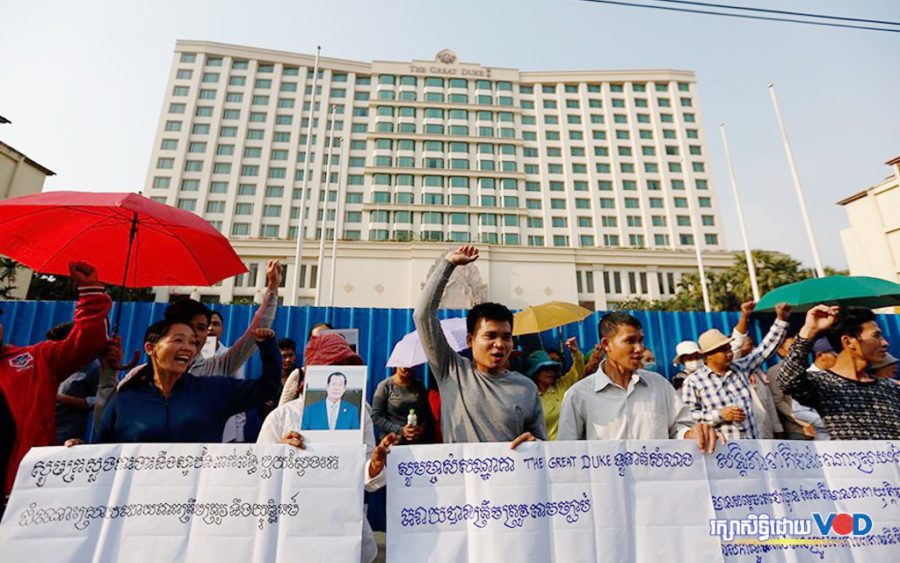Former staff of the closed Great Duke hotel have claimed that the owner still owes its employees more than $700,000 in unpaid seniority payments and benefits.
Representatives of the hotel staff met with Labor Ministry officials and the hotel owners’ lawyers this week, but they would not accept the Great Duke’s proposal to pay debt to workers in installments, said Touch Kosal, president of the Tourism Workers Union of the Great Duke Phnom Penh.
“[The hotel] argued that they are bankrupt, they gained no benefits, so they want to pay in installments,” Kosal said. However, some nonunion employees had been told that the hotel had enough money to settle, he claimed.
After a meeting on Thursday evening, Kosal said workers would halt their protest in order to wait for the Labor Ministry’s response.
Kosal said he sent a packet of documents showing the hotel owed $700,000 in unpaid salaries and benefits to the Labor Ministry on Tuesday, and an official from the strikes and demonstrations committee confirmed that it was received. Lawyers for the hotel could not be reached for comment.
The Great Duke, formerly known as the InterContinental Phnom Penh, officially closed on December 31 claiming financial pressure. According to Eurocham, the hotel changed hands in 2018 to be managed by the Regency Company and Singapore-based Great Duke Hotels and Resorts. Union workers started striking in November when the new owners began delaying salary payments.
Kong Chanthorn, a restaurant staff member who had her job for 10 years, said she was owed $5,000 in seniority pay and benefits. She said she could not accept payment in installments because she had debts to pay, and would want to use that money to build a new business after losing her job.
“It is really difficult,” said Chanthorn. “How difficult of a situation we have been in this whole month. If [compensation] is delayed for another month, we don’t know what is going to happen to us. [Our situation] will become even more serious.”
Neang Sovathara, acting director of training and communications at the Arbitration Council, said the institution had received the case but had not yet scheduled a date for mediation. Sovathara added that workers could file a complaint with the court if they were not satisfied with an Arbitration Council decision.
(Translated and edited from the original article on VOD Khmer)













